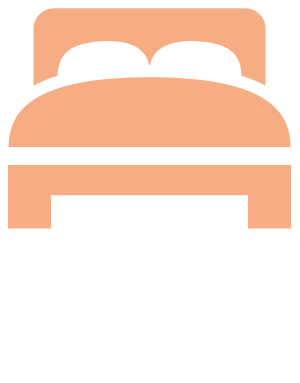A key ambition of researchers at UCD Conway Institute is the translation of the basic research performed in the laboratory to application in the clinical setting. Successful translational research requires close collaboration between Conway Fellows with both clinicians and their patients in the quest to develop the next generation of diagnostics, therapeutics and medical devices. In this way, discoveries made in UCD Conway underpin best practice for the medicines of the future.
Sleep apnoea and cardiovascular disease
At least 10% of middle aged adults suffer from obstructive sleep apnoea (OSA) characterised by recurring episodes of upper airway obstruction during sleep. Aside from impacting on their quality of life, OSA is strongly linked to cardiovascular diseases.
In OSA, the characteristic pattern of rapid fluctuations in oxygen levels (intermittent hypoxia) is likely to contribute to the process of atherosclerosis and subsequent cardiovascular diseases like high blood pressure, heart attacks and stroke. OSA is closely linked to obesity and there is increasing evidence that OSA and obesity interact in cardiovascular disease processes.
Clinician scientist, Dr Silke Ryan looks at the inflammatory responses of adipocytes (fat cells) exposed to intermittent hypoxia in the cell culture laboratory. Then in patient studies, she links these findings to the presence of early, potentially reversible atherosclerosis.
Recent findings from the team led by Prof Walter McNicholas, St. Vincent’s University Hospital and Prof Cormac Taylor, UCD Conway indicate that the severity of obstructive sleep apnoea may predict the volume of plaque seen in coronary arteries.
Kent B et al. Severity of obstructive sleep apnoea predicts coronary artery plaque burden: a coronary CT angiography study. European Respiratory Journal March 2013 doi: 10.1183/09031936.00094812
Ryan S, Taylor CT, McNicholas WT. Systemic Inflammation – A Key Factor in the Pathogenesis of Cardiovascular Complications in Obstructive Sleep Apnoea Syndrome? Thorax. 2009;64(7):631-6
Identifying key regulators of diabetic kidney disease
Global prevalence of diabetes is predicted to reach 4.4% by 2030. Up to 40% of patients with diabetes (types 1 & 2) will develop diabetic kidney disease (diabetic nephropathy). Clinicians require sensitive, specific biomarkers of disease progression and susceptibility to diabetic nephropathy as well as effective therapies for their patients.
It now appears that the development of diabetic nephropathy reflects a continuum from unresolved inflammation to eventual organ failure. If that is the case, tackling inflammation may represent a novel therapeutic strategy.
Research in the UCD Diabetes Complications Research Centre at the institute, led by Prof Catherine Godson, involves synthetic chemists, cell biologists, geneticists and clinicians. They believe that the lipoxins involved in regulating inflammation may have therapeutic potential via mechanisms involving regulation of miRNAs. The team have designed novel synthetic lipoxins as prototype therapeutics for diabetic nephropathy.
Brennan EP et al. Lipoxins attenuate renal fibrosis by induction of let-7c and suppression of TGF-ßR1. Journal of the American Society of Nephrology, 2013 (24(4):627-637)
Borgeson et al., Lipoxin A₄ and benzo-lipoxin A₄ attenuate experimental renal fibrosis. FASEB J. 2011 Sep;25(9):2967-79. r
Irish Cancer Society Collaborative Cancer Research Centre BREAST-PREDICT
In 2013, the Irish Cancer Society funded the first collaborative cancer research centre in Ireland. Led by Prof William Gallagher, BREAST-PREDICT brings together the expertise and support of 6 academic institutions and a nationwide clinical trials group (ICORG). They will use advanced technologies, mathematics and computer modelling to define key breast cancer-driving pathways, examine the responses of breast tumours to targeted therapy and validate signature-based diagnostics to predict disease outcome and response to therapy.
Diagnosing and treating heart failure
Dr John Baugh works with clinicians including Prof Ken McDonald, SVUH to identify diagnostic and prognostic biomarkers and new therapies for heart failure (HF). They are specifically interested in diastolic heart failure, an increasingly prevalent type that is difficult to diagnose and has no effective treatments. They have identified 2 promising novel therapeutics and 17 new serum biomarkers of HF. The team are developing a multi-marker panel that will differentiate between diastolic and systolic HF and hope this research will improve the diagnosis and treatment of this syndrome.




